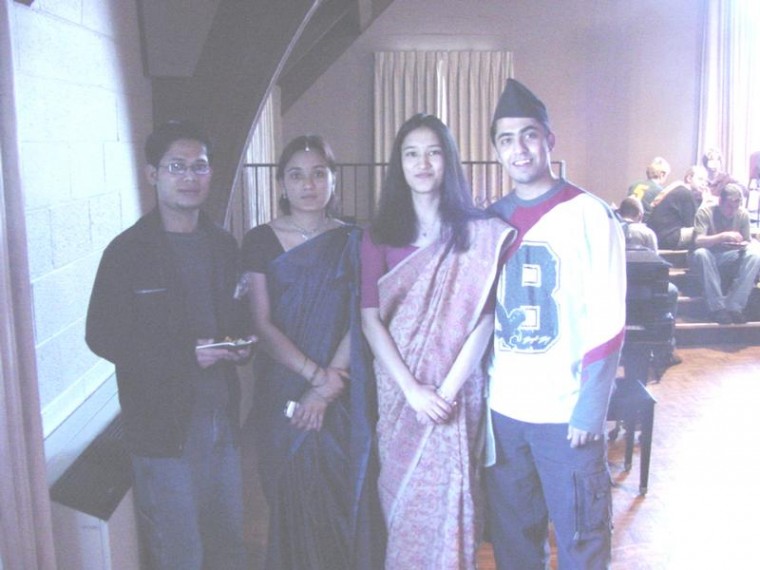Atmosphere lacks needed tolerance
April 17, 2003
As the war in Iraq progresses and the debates between anti and pro-war groups on campus become more heated, some international students have begun to feel that contributing to war discussions may not be in their best interest.
In her April 8 column, Simpsonian staff member and international student Vania Quiroz exercised her right to free speech (and fulfilled her assignment for a scheduled course) and addressed her feelings regarding recent incidents of vandalism on campus that she felt were disrespectful.
Quiroz, a sophomore, said that she wanted her column to motivate students to respect others’ opinions and property. However, after receiving an e-mail message from an angry pro-war Simpson student, she realized that her article had been misinterpreted.
“I took the e-mail as a personal attack because there was no connection to my article,” said Quiroz. “It was very hurtful.”
Although Quiroz said that she realizes that she has a right to express her feelings, she also said that she was now more apprehensive about writing her views since the April 8 column.
“At some point after the incident, I called my mom and my aunt to talk to them about it and my mom warned me not to state my opinions,” said Quiroz.
Shristi Upreti, a sophomore international student, can identify with Quiroz’s situation.
Upreti has not received any direct, harsh public criticism but she said that she purposely tries not to get involved in protests and debates regarding her position on the war.
“I think that I worry about it because I realize that (Simpson students) are the students I have to be here with for the next two years,” said Upreti.
Upreti, who does not want to offend any pro or anti-war students at Simpson, has a ribbon bearing the American flag in her room.
The ribbon, that Upreti said she used to wear on her coat, confused some Simpson students.
“A couple of students came up and asked me why I was supporting the war and U.S. military policy as an international student,” said Upreti. “They acted surprised.”
Upreti has other motives for remaining silent about her war views, besides her concerns about offending students.
“I don’t express or protest because I have obligations to study,” she said.
Although not all international students have come into contact with criticism about expressing their views on the war, many are aware of and can identify with their peers’ feelings.
Ying Mei Zhang, a junior international student, said that she has not experienced any criticism but can understand how international students may fear that others who disagree with them may attack their views.
“In my opinion we [international students] are in America now, and if we express our opinions it may affect how other American students treat us,” said Zhang. “I don’t express my views on politics or world events that much, maybe that’s why I haven’t experienced any of it.”
As for Quiroz, she said that the student who sent her the e-mail has apologized and that she does not have any hard feelings toward the student.
“The way he approached the situation bothered me, and if he wants to talk to me I’ll respect his opinion,” said Quiroz. “I would like to think he did it [wrote the e-mail] in an irrational state of mind.”
Quiroz also plans to continue to express her ideas and views, despite being a little more apprehensive.
“I am going to make sure that I keep doing the job I’ve been doing by giving my opinion as an outsider and trying not to offend anyone,” she said.
Sophomore Chris Schacht said that he feels Quiroz and other Simpson international students are justified in speaking out on war issues.
“This is a world-wide issue that doesn’t just affect Americans,” said Schacht. “Everyone has a right to express their views and suppressing that right is detrimental to democracy.”
Junior international student Benni Zasendorf agrees.
“It is important to speak your mind,” said Zasendorf. “Even if you are an international student.”












